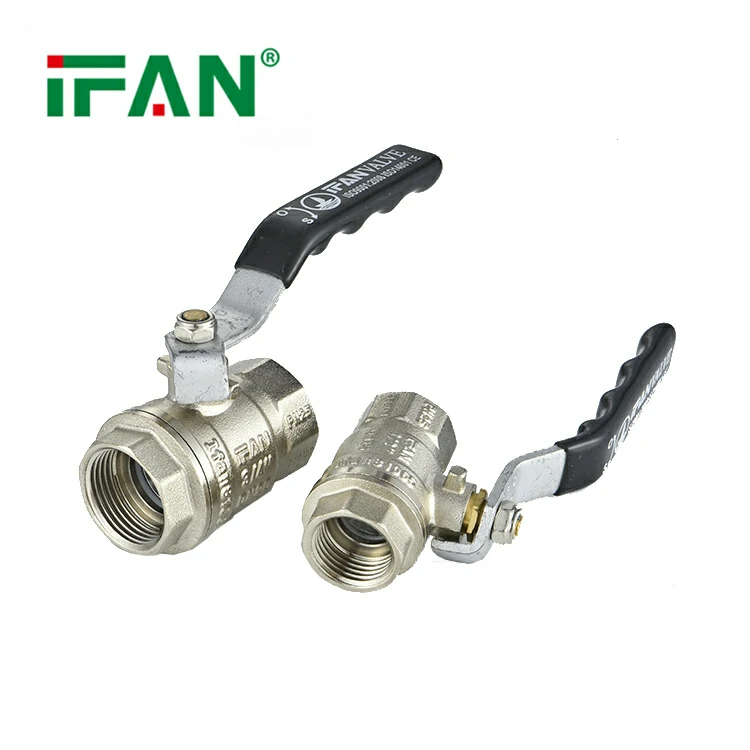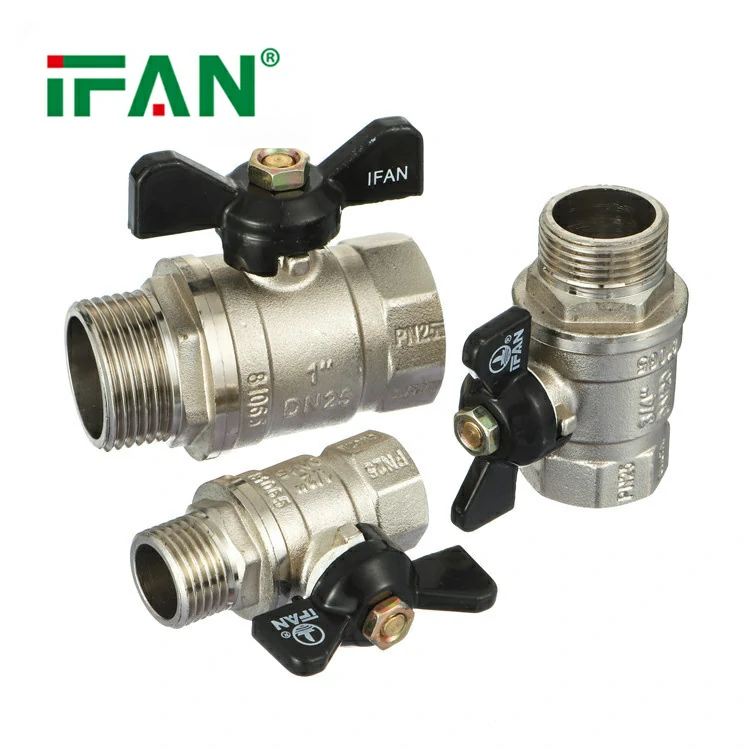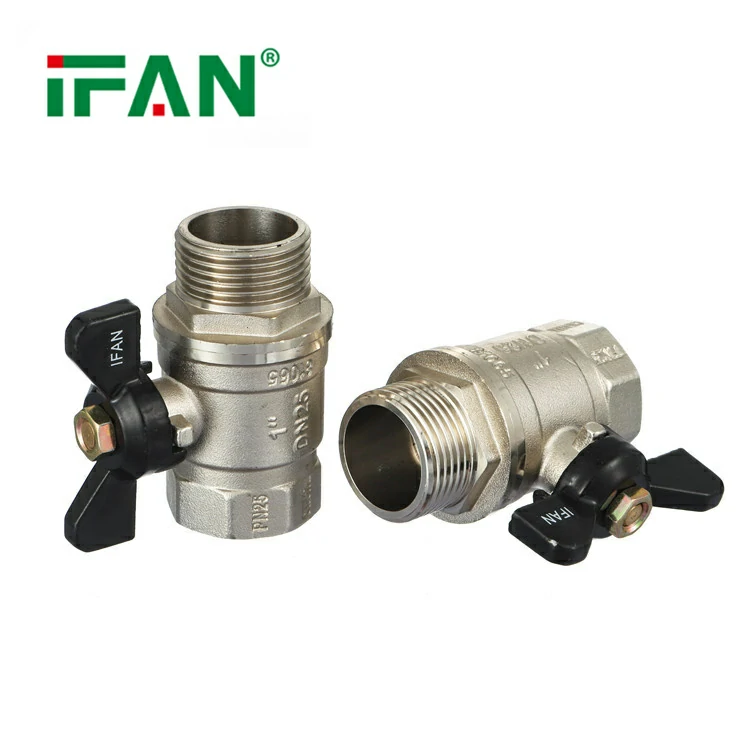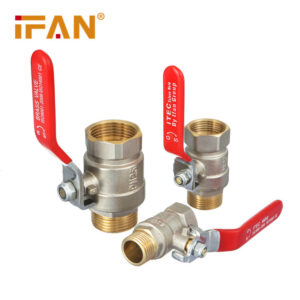Description
IFAN factory 30+ years manufacture experience support color /size customization support free sample.Welcome to consult for catalog and free samples.This is our Facebook Website:www.facebook.com,Click to watch IFAN’s product video.Compared with Tomex products, our IFAN products from quality to price are your best choice, welcome to buy!
Brass ball valves are commonly used in plumbing and water systems due to their durability, reliability, and ease of operation. However, when it comes to drinking water systems, safety and compliance with regulations become critical factors to consider. In this article, we will explore the role of brass ball valves in drinking water systems, focusing on their safety, potential health risks, and how to ensure compliance with water quality standards.
What Are Brass Ball Valves?
A brass ball valve is a type of valve that uses a spherical ball with a hole in the center to control the flow of water. When the valve is open, the hole in the ball aligns with the flow path, allowing water to pass through. When the valve is closed, the ball rotates to block the flow of water, stopping the passage of fluids.
These valves are made from brass, a copper alloy that offers excellent resistance to corrosion and is often used in water systems, both residential and commercial. Brass ball valves are commonly found in applications like irrigation, HVAC systems, and drinking water plumbing, but they must meet certain safety and regulatory standards when used in potable water systems.
The Importance of Safety in Drinking Water Systems
The safety of drinking water is of utmost importance to public health. Contaminants like lead, bacteria, and other harmful substances can easily make their way into drinking water if plumbing components are not properly selected or maintained. Brass ball valves, while generally safe, can present potential risks if they do not meet safety standards or if they are improperly used in drinking water systems.
Lead and Other Hazardous Materials in Brass
One of the main concerns when using brass ball valves in drinking water systems is the presence of lead. Traditional brass alloys often contain lead, which can leach into the water supply and pose significant health risks, particularly for vulnerable populations like children and pregnant women.
To mitigate this risk, many countries, including the United States, have established strict regulations limiting the amount of lead in plumbing materials. The Safe Drinking Water Act (SDWA) in the U.S., for example, mandates that plumbing components used in potable water systems, including brass ball valves, must contain no more than 0.25% lead by weight.
In response to these regulations, manufacturers have developed lead-free brass ball valves that are specifically designed for drinking water applications. These valves are made with alternative materials, such as copper, zinc, and other metals, to replace lead, ensuring that the valves are compliant with modern safety standards.
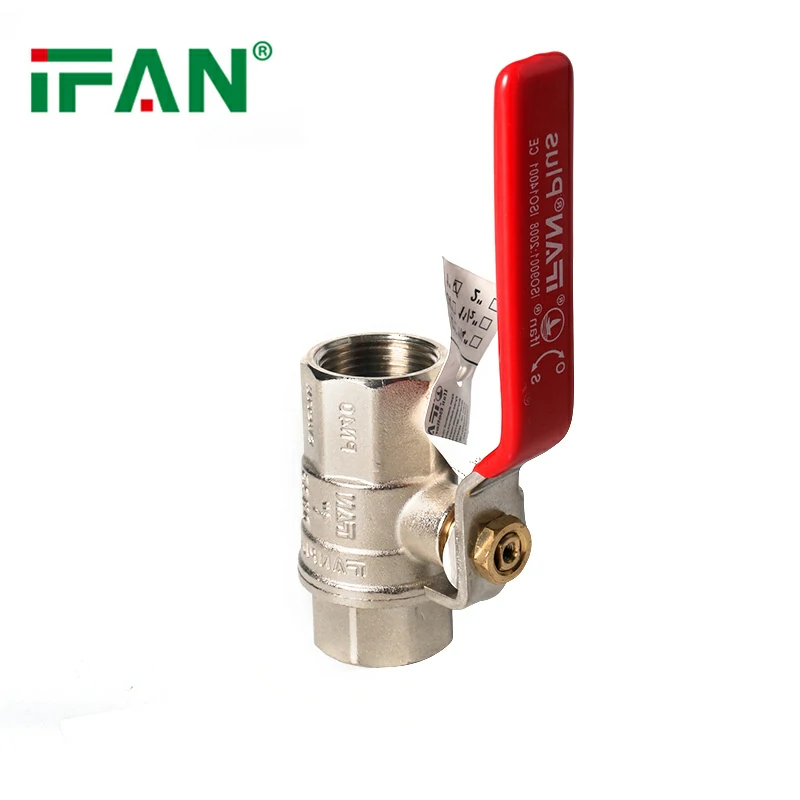
Regulatory Compliance for Brass Ball Valves
Ensuring that brass ball valves comply with relevant safety standards and regulations is crucial for maintaining water quality and protecting public health. In the United States, the National Sanitation Foundation (NSF) sets standards for materials used in drinking water systems. The NSF/ANSI 61 standard, in particular, addresses the safety of materials in contact with drinking water, including brass ball valves.
Valves that meet NSF/ANSI 61 certification ensure that they are free from harmful substances and will not leach contaminants into the water supply. Other certifications, such as NSF/ANSI 372, are specifically aimed at lead-free components for potable water systems. When selecting a brass ball valve for a drinking water system, it is crucial to check that the valve has been certified by NSF or a similar regulatory body.
Health and Environmental Considerations
Aside from lead, brass ball valves may contain other metals or alloys that could pose health risks. For example, some older brass alloys might containcadmium, which is another toxic metal that can leach into drinking water. While most modern brass ball valves are made with materials that comply with safety standards, it is important to choose products from reputable manufacturers who follow strict quality control practices.
Additionally, the environmental impact of manufacturing and disposing of brass ball valves should be considered. Brass is a recyclable material, but if improperly disposed of, it can contribute to environmental pollution. When installing or replacing brass ball valves, it’s important to follow local guidelines for recycling and disposal.
Choosing Safe Brass Ball Valves for Drinking Water Systems
When selecting a brass ball valve for a drinking water system, there are several key factors to consider to ensure both safety and compliance:
1. Look for Lead-Free Certification
As mentioned, lead is a significant concern when it comes to drinking water systems. Always choose **lead-free** brass ball valves that comply with NSF/ANSI 372 certification. These valves are specifically designed to minimize the risk of lead contamination in drinking water.
2. Verify NSF/ANSI 61 Compliance
Ensure the valve meets the NSF/ANSI 61 standard, which certifies that the valve is safe for use in potable water systems. This standard ensures that the materials in the valve will not leach harmful substances into the water.
3. Choose a Reputable Manufacturer
Select a valve from a trusted manufacturer who follows industry standards and regulations. Reputable manufacturers will often display certifications and test results for their products, which can give you peace of mind about the quality and safety of the valve.
4. Check for Quality Materials
While brass is commonly used, it is essential to verify that the specific alloy used in the valve is safe for drinking water applications. Some high-quality brass alloys are more resistant to corrosion and leaching, ensuring that your water supply remains free from contaminants.
5. Regular Maintenance and Inspection
Once installed, brass ball valves should be periodically inspected to ensure they are functioning correctly and not leaking. Leaky valves can allow contaminants into the system, and faulty valves might lead to water flow issues. Regular maintenance helps extend the lifespan of the valves and ensures continued safety.
Conclusion
Brass ball valves are a reliable and durable choice for drinking water systems, but it is crucial to ensure that they meet safety and regulatory standards to avoid contamination risks. By choosing lead-free, NSF/ANSI 61-certified brass ball valves from reputable manufacturers, homeowners and businesses can ensure that their water supply remains safe and compliant with health regulations. Regular maintenance and inspection further contribute to the long-term safety of the water system.
FAQs
1. Are brass ball valves safe for drinking water?
Yes, brass ball valves can be safe for drinking water if they are lead-free and comply with regulations such as NSF/ANSI 61 and NSF/ANSI 372, which ensure the materials used do not leach harmful substances into the water.
2. How can I tell if a brass ball valve is lead-free?
Check for certifications like NSF/ANSI 372, which indicates that the valve is lead-free and safe for potable water applications.
3. What is the NSF/ANSI 61 standard?
NSF/ANSI 61 is a certification standard that ensures materials used in plumbing components, such as brass ball valves, do not leach harmful chemicals or contaminants into drinking water.
4. How often should brass ball valves be inspected in drinking water systems?
Brass ball valves should be inspected regularly for leaks, corrosion, or damage. Annual inspections are recommended, but more frequent checks may be necessary depending on the system’s usage.
5. Can brass ball valves be recycled?
Yes, brass is a recyclable material. When replacing or disposing of brass ball valves, be sure to follow local recycling guidelines to minimize environmental impact.
Related products
-
Ball Valve
Male Thread Brass Ball Valve
-
Ball Valve
Brass Ball Valve
-
Ball Valve
Brass Ball Valve with Unoin
-
Ball Valve
Brass Ball Valve


